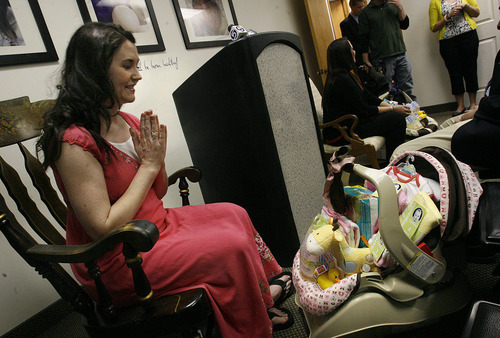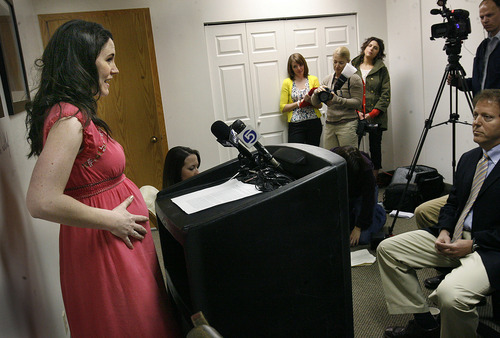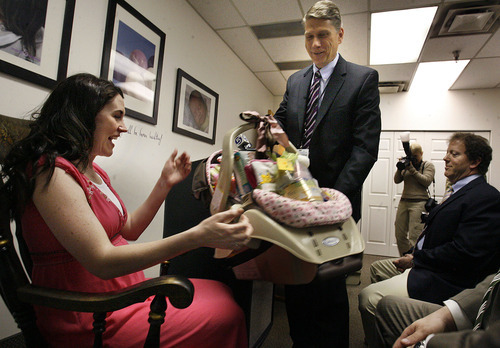This is an archived article that was published on sltrib.com in 2011, and information in the article may be outdated. It is provided only for personal research purposes and may not be reprinted.
Doctors have few ways of identifying which first-time pregnant women will suffer from preterm birth, miscarriage or stillbirth.
Those newly pregnant women don't have experience for a doctor to rely on to predict who will have complications. And those women aren't often researched — until now.
As part of a national study, Utah researchers are seeking 2,000 first-time expectant women to help them understand the underlying mechanisms in premature births, pre-eclampsia (maternal high blood pressure), fetal growth restriction and stillbirths.
The goal is to develop laboratory tests that would detect biomarkers in urine or blood that would identify women at risk, said Robert Silver, chief of the Division of Maternal-Fetal Medicine at the University of Utah's School of Medicine. He is also principal investigator of the Utah portion of the study.
The study, he said at a Thursday news conference aimed at encouraging women to join, "really helps us learn more so we can take better care of moms and babies."
It could help reduce medical costs as well. Silver said $3 billion is spent every year to treat babies born prematurely.
Women delivering at the University of Utah and Intermountain Healthcare's McKay Dee (Ogden), Utah Valley Regional (Provo), LDS (Salt Lake City) and Intermountain Medical (Murray) can enroll through next January.
Participants must be less than 14 weeks pregnant and 18 years old or older. They'll be checked at least three times during the pregnancy, with researchers collecting blood, urine and vaginal fluid samples. The study will also include interviews and several free ultrasounds.
The Nulliparous Pregnancy Outcomes Study — Monitoring Mothers-to-be (nuMOM2b), is sponsored by the Eunice Kennedy Shriver National Institute of Child Health and Human Development. The study will enroll 10,000 women from eight locations, including hospitals in California, Delaware, Illinois, Indiana, New York, Ohio and Pennsylvania.
Utahns will also contribute to a sub-study, looking at sleep apnea during pregnancy. A device will temporarily monitor the women while they sleep, Silver said. The chemical changes that occur in the body due to interrupted breathing may contribute to preterm birth and other pregnancy problems.
Two mothers participating in the study said they want to help future mothers avoid the pain of pregnancy loss and the stress of preterm birth or pre-eclampsia.
It's personal for Sarah Reeder, who was pregnant with twins in 2010 and miscarried when she was about two months along. The 32-year-old got pregnant again a year later, and her daughter is due in August.
She plans to be one of the study's success stories. She said the study has made her more aware of premature labor signs.
"I need her [baby] to stay in there as long as possible," said Reeder, who is due in August on the same day her twins were due. "My goal is the due date."
Throughout her pregnancy, Rainy Tennysen, 25, has looked forward to all the milestones: hearing her boy's heartbeat, feeling his kicks. Now that her son is due in a couple of weeks, she can't wait to see him. "Just to be able to hold him and see something you created is amazing."
Along with those hopes are fears of him coming too soon, of losing the pregnancy. She feels like she's putting those fears to good use by participating in the study.
"I'm really grateful to have had a healthy pregnancy. If there's anything that can be done to help [avoid complications], that's a great thing we can do."
For more information
Contact Kelly Vorwaller at 801-585-6996.







